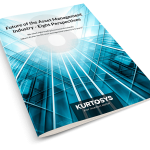Finally, we’re about to push the button. The Supreme Court ruling in January clears the way for Theresa May’s government to trigger Article 50 of the Treaty of Lisbon – once she has Parliament’s approval, that is – which will give the UK two years to negotiate its way out of the European Union. Ministers will need to agree a deal with the EU that encompasses both the terms of the UK’s withdrawal and its future relationship with the bloc.
For UK-based fund managers currently marketing their products and services in the European Union, this is where the fun starts, though that’s probably not the most appropriate word. Such marketing is currently done under the “passporting” arrangements that allow any EU financial institution to access any EU financial market without restrictions; but passporting will disappear once the UK quits the EU, so the negotiations will need to deliver an alternative if fund managers in the UK are not to be denied EU access in two years’ time.
Many fund managers are distinctly gloomy about what lies ahead. More than two-thirds of investment professionals in recent research jointly conducted by the Financial Times and PwC do not expect to be able to sell their funds freely across the EU once the UK has left. Some 70 per cent said asset managers were unlikely to retain their full passporting privileges under whatever deal is eventually agreed.
Moreover, while there has been some optimism in recent months that passporting might be replaced by some sort of equivalency test, which would see UK firms given access to the EU assuming British regulation was judged to be broadly equivalent to that of the EU, City lobby groups have grown increasingly cold on this idea. For one thing, there’s no guarantee the negotiations will produce such an outcome; for another, equivalency does not provide the same level of certainty as passporting – it’s a political construct, rather than a technical standard, and can be withdrawn by politicians with 30 days’ notice.
So what do fund managers do now to plan ahead for a post-Brexit world? Well, the good news is that the majority of UK asset managers do already have bases in EU countries such as Luxembourg and Dublin, from where they will be able to sell “UCITS” funds to EU-based investors under the Undertakings for Collective Investment in Transferable Securities regulation. That may solve a significant number of issues.
Nevertheless, the FT/PwC poll suggests 85 per cent of managers believe it will be necessary to move at least some UK-based investment staff to mainland Europe – that includes 25 per cent who have already put plans in place to move employees. Not least this is because managers are worried about being able to continue to employ EU nationals in the UK, once the freedom of movement principle disappears as a result of Brexit.
There is also the question of what happens to asset managers not covered by the UCITS regulation – particularly those in the hedge fund industry. Many face being locked out of the EU arrangements without an obvious route back in.
Some in the sector now hope that the Alternative Investment Fund Managers Directive might provide an answer. It includes a provision for a third-country passport for countries outside the EU that meet agreed standards, under which firms in such countries would go on having access to the single market.
It’s important to point out, however, that this system has yet to be fully implemented. So while UK fund managers would hope that full implementation will follow soon, and that the UK will then qualify for a third-country passport, there are no guarantees. Even leaving aside the tricky politics of Brexit, discussions over exactly how this process will operate have been prolonged.
The bottom line is that no fund manager should count on being able to access the EU’s markets in the same way in two years’ time as they do today – all managers now need to make contingency planning an absolute priority, especially since the final shape of the deal, or any transitional arrangements, is unlikely to emerge until the last minute. Investors, too, in both the UK and the EU will want to be kept informed.
 We asked eight leading financial professionals: “Where do you see the asset management industry in 5 years?”. Read their responses across a broad range of topics including fees, millennials, robo-advisors, ETFs, index funds and regulation.
We asked eight leading financial professionals: “Where do you see the asset management industry in 5 years?”. Read their responses across a broad range of topics including fees, millennials, robo-advisors, ETFs, index funds and regulation.
White Paper: Future of the Asset Management Industry – Eight Perspectives
 We asked eight leading financial professionals: “Where do you see the asset management industry in 5 years?”. Read their responses across a broad range of topics including fees, millennials, robo-advisors, ETFs, index funds and regulation.
We asked eight leading financial professionals: “Where do you see the asset management industry in 5 years?”. Read their responses across a broad range of topics including fees, millennials, robo-advisors, ETFs, index funds and regulation.



